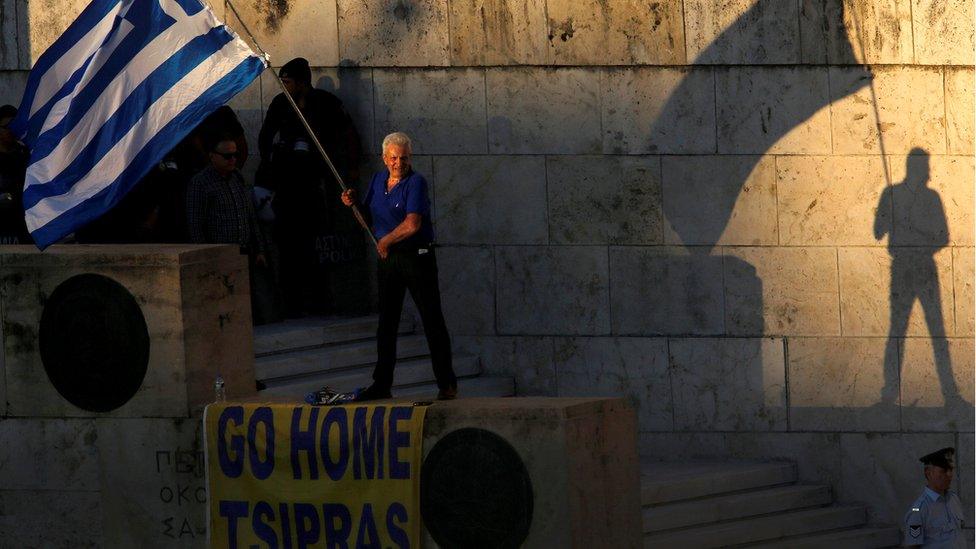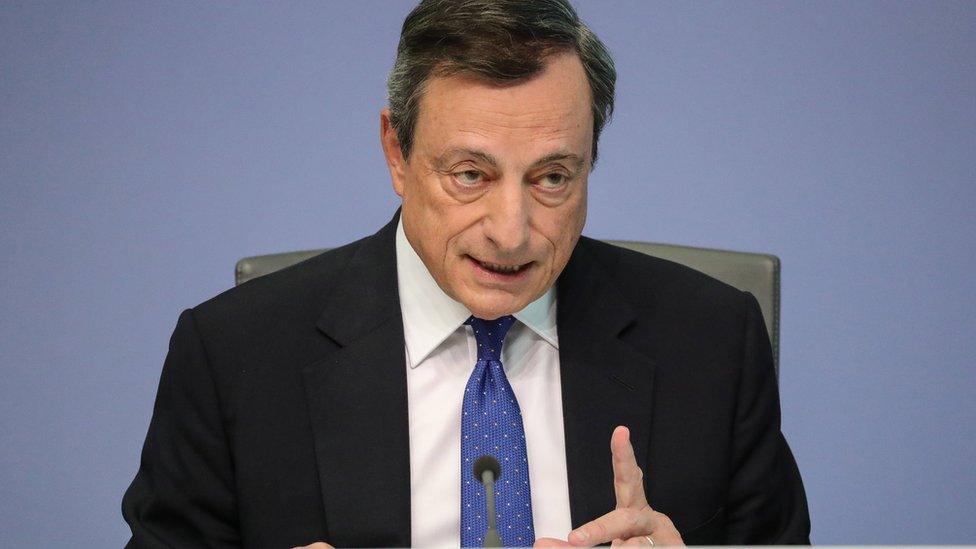Greek economy sinks back into recession
- Published

Greece has fallen back into recession for the first time since 2012, official figures from Eurostat show.
The country's gross domestic product (GDP) fell by 0.1% in the first three months of the year after shrinking by 1.2% in the final quarter of 2016.
The figures come as Greek unions begin two days of industrial action against cuts to pensions and tax rises insisted on by creditors.
Greece is still struggling to secure a new bailout from international lenders.
Its government hopes the loan payment will be approved by a meeting of eurozone finance ministers on 22 May.
Howard Archer, chief economist at IHS Markit, said Greece's return to recession was largely due to uncertainty over the bailout.
"Encouragingly, agreement between Greece and its lenders on reforms was agreed in early May," he said.
"With EU creditors now expected to finally sign off on Greece's latest injection of rescue cash, the European Commission expects growth to bounce back to 2.6% this year."
Greek ferries and news services were being disrupted on Tuesday as part of two days of industrial action to protest against a new round of austerity measures.
A 24-hour general strike planned on Wednesday is expected to disrupt transport and public services.
Eurostat said the European Union as a whole continued to grow in the first quarter, expanding by 2% compared with the same period last year.
In the eurozone, annual growth came in at 1.7%, with a 0.5% rise for the quarter compared with the last three months of 2016.
The fastest-growing economies were Latvia, Lithuania and Portugal, which expanded by 1% in the quarter.
Germany, the EU's biggest economy, posted a 0.6% expansion.
- Published27 April 2017
